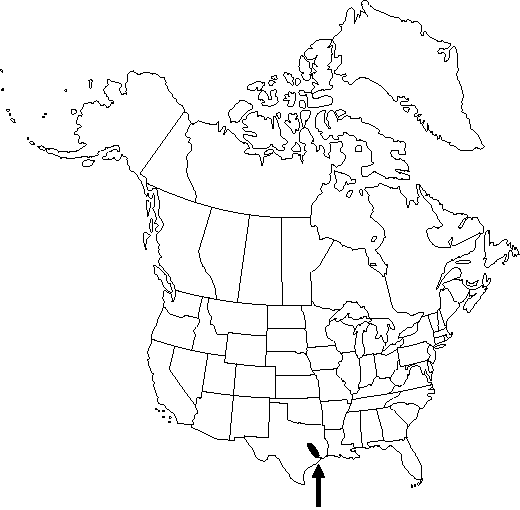Thalictrum texanum
Fl. S.E. U.S., 446. 1903.
Roots becoming black when dry, tuberous, not ribbed, irregular. Stems erect, 10-45 cm, rigid, glabrous. Leaves: distal cauline long-petiolate. Leaf-blade 2×-ternately compound; leaflets cuneate to reniform, undivided, cleft, or lobed, 2-7 mm wide, margins entire or sometimes weakly crenate, surfaces glabrous, somewhat glaucous. Inflorescences terminal, racemes, several flowered. Flowers: sepals lanceolate to obovate, in staminate flowers 1.7-3 mm, in pistillate flowers 0.7-1.5 mm; filaments colored, not white, ca. 1.5 mm; anthers 1.4-2 mm; stigma color unknown. Achenes few, not reflexed, nearly sessile; stipe 0.1-0.3 mm; body ovoid, not laterally compressed, adaxial surface 2.7-3.7 × 1.4-1.6 mm, glabrous, prominently 6-8-veined, veins not anastomosing-reticulate; beak 0.5-1 mm.
Phenology: Flowering early spring (Mar–Apr).
Habitat: Margins or openings of mesic woodlands or forests
Elevation: 10-100 m
Discussion
Of conservation concern.
Somewhat difficult to locate in the field, Thalictrum texanum is currently known from only two populations. It is closely related to T. arkansanum and T. debile and sometimes treated as a variety of the latter.
Thalictrum confine is quite similar to T. occidentale and T. venulosum; it has been treated as a variety or synonym of the latter (R. S. Mitchell 1988).
Selected References
None.
